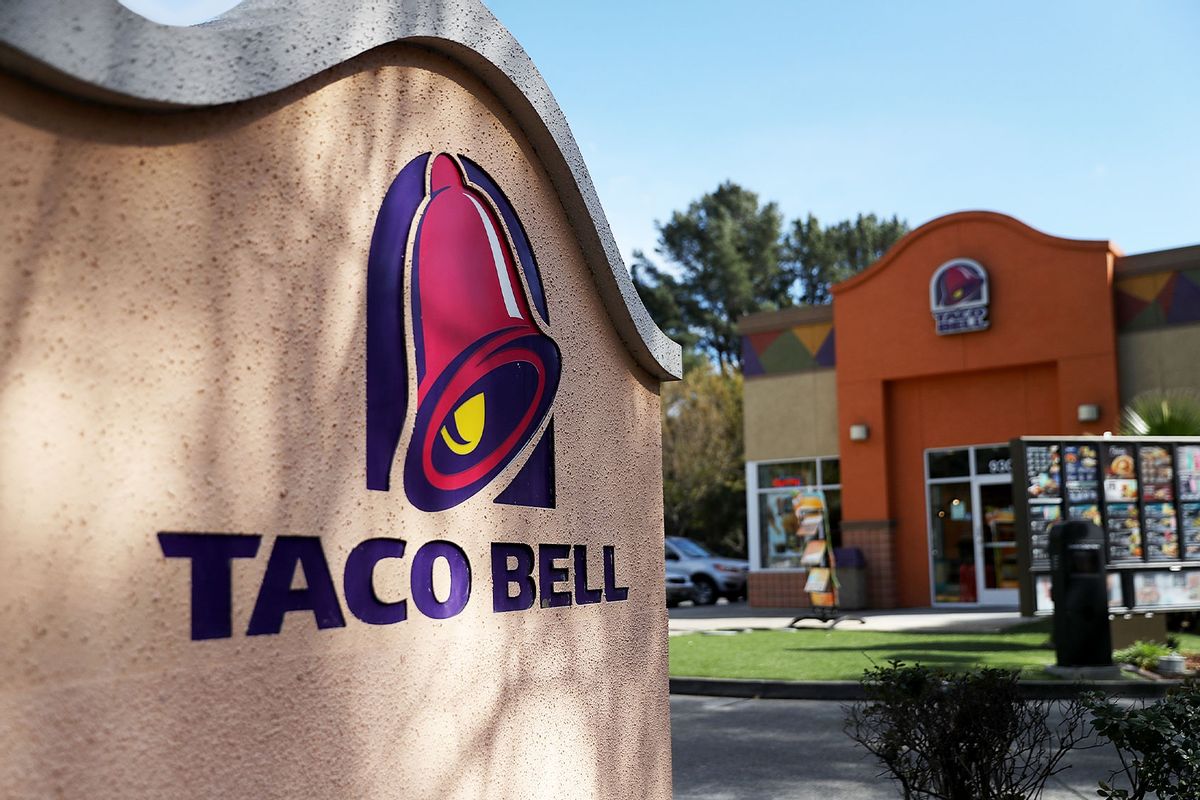Taco Bell is no amateaur when it comes to riling up the internet over its latest menu offerings. Earlier this year, it was the Mexican Pizza, which returned to the chain following a 17-month hiatus. Then, it was the limited-time-only 7-Layer Nacho Fries. And now, it's the "new" and reformulated premium guacamole, which was announced quietly in a recent press release.
"Taco Bell's new, creamy guacamole is made with real Hass avocados, freshly prepared daily, featuring tomatoes and crisp onions added to every batch," the press release detailed, assuring fans that Taco Bell's latest offering is nothing like the premade goop they formerly passed off as mashed avocados. The release also described the new guacamole as "chunky, yet spreadable and dippable" and said it flaunts a seasoning sauce with hints of lime.
Within hours of the guacamole's announcement, online sleuths scrambled to uncover its too-good-to-be-true ingredients list and decode its in-house preparation. Per one Reddit user who claimed to be a Taco Bell employee, the guacamole is made from a bag of avocado pulp, a bag of guacamole seasoning, two cups of tomatoes and a cup of onions.
A step-by-step tutorial for preparing the guacamole was even showcased in a YouTube video. In it, a Taco Bell kitchen employee throws in chopped onions and tomatoes into a container before plopping a blob of avocado pulp from a plastic bag, thus proving that the guacamole is not as "fresh" as it claims to be.
The ongoing hoopla surrounding Taco Bell's guacamole release reinforces a burgeoning genre of online content — notably on TikTok and Reddit — centered around fast food transparency and myth busting. As Jacob Sweet wrote in his piece "The Fast-Food Stars of TikTok" for The New Yorker, there is now more transparency about what actually goes into fast food meals because fast food workers view that transparency as a shortcut to content. The formula behind this new, yet predictable, phenomenon looks something like this: a fast food place introduces a new product or menu change, fans gather online to "investigate" said changes and, inevitably, a worker will also join their ranks for some corporate myth-busting. We've seen this with Cold Stone employees, who attained TikTok fame simply by posting videos of themselves fulfilling orders, and Subway employees, who enticed viewers with point-of-view videos of themselves making and eating sandwiches.
We've also seen this in "I work at [insert fast food place]. AMA" Reddit threads, where fast food employees can expose their place of work while still maintaining their anonymity.
Want a daily wrap-up of all the news and commentary Salon has to offer? Subscribe to our morning newsletter, Crash Course.
Of course, increased transparency about what goes into our foods is beneficial as it gives consumers more control over their purchases. As Bruce Chambers wrote for CBC, "if consumers feel they have a full understanding of what's in a food product — even if it's not an entirely appetizing picture — they'll continue buying it. If not, they'll switch to a competing brand for as long as it can retain their confidence." The same goes for fast food. Food transparency isn't enough to dissuade consumers from ordering fast food — and in Taco Bell's case, it certainly isn't enough to dissuade consumers from ordering their "new" guacamole. But, at least, it will encourage consumers to be more conscious about their food choices, especially now that they have more access to how their foods are prepared.



Shares